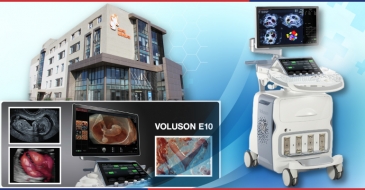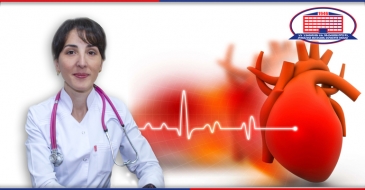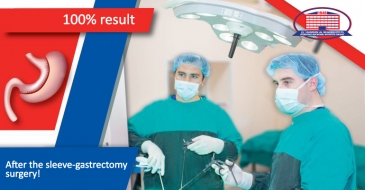The thyroid gland is an endocrine gland, which has an important function in the body.
The thyroid gland regulates metabolism, affects the functioning of organs and tissues.
It is established that the incidence of thyroid disease is about 2% in the world. In Georgia, this number is much higher.
The endocrinologist at the National Center of Surgery Ana Chokhonelidze is talking with us about this problem.
- Dr. Ana, what is the goiter?
- The term goiter means an enlargement of the thyroid gland. Often people call all pathologies of the thyroid gland goiter.
- when does goiter develop?
- Goiter can develop in case of iodine deficiency, which is often found in endemic areas. In this case, we call this pathology endemic goiter. The thyroid gland can enlarge as a result of the autoimmune damage, which may be accompanied by functional impairment.
- What is a nodular goiter?
- When the nodular damage appears in certain parts of the thyroid gland, then the goiter is called the nodular. Nodular goiter can develop in normal size, enlarged or decreased thyroid gland, which may or may not have the impaired function.
- How can we identify nodular goiter?
- When a node is large, it can be seen visually. Nodes can be detected by palpation, although ultrasound is considered to be the gold standard for diagnosis. The state-of-the-art machines can even identify 2 mm lesions.
- What are the symptoms of thyroid dysfunction?
-In case of thyroid gland pathology, a functional overactivity - hyperfunction, hyperthyroidism or deficiency - hypofunction, hypothyroidism can develop.
Characteristic features of hyperthyroidism are: sweating, weight loss, hand tremor, emotional lability, irritability, heart palpitations, frequent bowel movement, muscle pain, and general weakness.
Characteristic features of hypothyroidism are: severe general weakness, dry skin, general swelling, hair loss, brittle nails, heart rhythm disturbances, drowsiness, and constipation.
If the patient has a nodular goiter, but neither the node nor the thyroid gland is enlarged to the extent that it causes difficulty swallowing or pressure, then the pathology is called asymptomatic.
- Who are especially at risk?
- The risk group includes people who have a genetic predisposition to thyroid disease, as well as those living in the endemic areas with iodine deficiency, pregnant women, people who had a history of exposure to the radiation close to the thyroid gland, people with any hormonal disorders.
- What can you tell us about the methods of diagnosis of thyroid disease at the National Center of Surgery?
- At the National Center of Surgery, a full range of hormonal studies of the thyroid gland and the ultrasound examination using the modern device TOSHIBA APLIO 500 are carried out. If necessary, a puncture biopsy of the thyroid gland and an immunohistochemical study of the material is performed.
With the help of the ultramodern ultrasound device TOSHIBA APLIO 500, the results of the treatment are monitored with great precision, which has the maximum safety for patients.
Ultrasound examination of the thyroid gland is one of the most important research methods for measuring its size and structural changes that occur in various pathologies of the thyroid gland. The evaluation of the node identified during the research is done by the endocrinologist and the radiologist together.
The next step after diagnosing a suspicious node is a fine-needle aspiration to determine if the node is malignant or benign on the cellular level. Elastography determines the density of the node. The elastography mode has a special scale for density determination. With it, the device can do a numerical analysis of the density of the tissue. Two control zones are taken, one from the intact soft tissue and the other from the suspicious site. The device shows the coefficient of elasticity in the indicated areas, the area with a relatively high coefficient is considered more suspicious and its biopsy is recommended.
The elastography mode helps us during the biopsy and allows us to determine the densest area of this node, fix the prognostically dangerous area and take the tissue for examination from there. This eliminates false, positive or false negative results. If necessary, medication therapy is prescribed. A highly skilled surgical treatment is performed if necessary. There is constant monitoring of the patient during the preoperative and postoperative period.
National Center of Surgery address – Tbilisi, Digomi Chachava street N5.
You can contact the Call-center of the National Center of Surgery at 577 11 91 19 or 2 02 25 25;
Wish you health!









